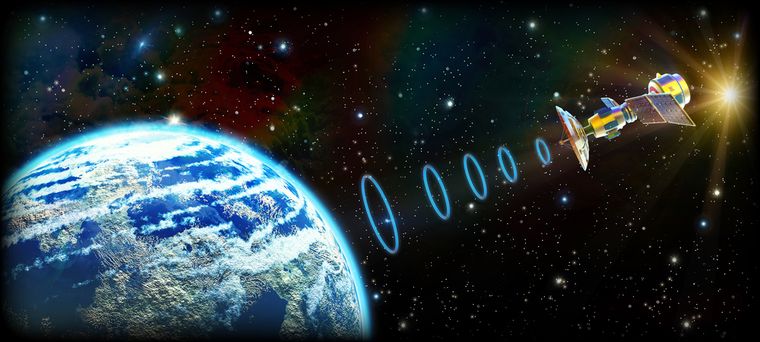ON AUGUST 29, at a ceremony held in the White House, President Donald Trump formally launched Space Command, the 11th unified combatant command of the US department of defence. The president has already asked the Pentagon to create, by 2020, a space force as the sixth branch of the US military.
The US has clearly spelt out space as its next war-fighting domain. Across the Atlantic, France, Europe’s leading player in space research, too, seems to be thinking on similar lines. Addressing a military gathering in Paris on the eve of the Bastille Day celebrations, President Emmanuel Macron announced the reorganisation of its air force to include space defence and renamed the new service as the Air and Space Force.
Also read
- National Space Day: Why it is a significant milestone in India's space journey
- Chandrayaan-3: 2 of 3 objectives achieved. What’s next
- Watch: ISRO shares video of Pragyan rover ramping down from Vikram lander
- Chandrayaan-3: Rover 'Pragyan' rolls out. See images captured by 'Vikram' lander
- Chandrayaan-3's Tamil connect: The soil from Nammakal and the three scientists
With its increasing presence in space and because of the growing space capabilities of China, India is also scaling up its space defence preparedness. Unlike other major space powers, India had limited its space initiatives for civilian purposes in the past. China’s successful anti-satellite (ASAT) test in January 2007 was, however, a wake up call. A year later, India set up a tri-service agency, the Integrated Space Cell, to explore the possibility of using its space capabilities for military purposes. Following its own successful ASAT test in March 2019, India established a Defence Space Agency. The military space agency, with its headquarters in Bengaluru, will be headed by an air vice marshal level officer. It will be assisted in research and development by the newly-launched Defence Space Research Agency, which has been given the mandate to create “space warfare weapons systems and technologies”.
With the US, Russia, China and France actively moving ahead with their plans to weaponise space, India is unlikely to hold back. India could look at developing sufficient counterspace capabilities as a credible minimum deterrent, like in the case of nuclear weapons.
Future wars will be won and lost in space. “Slowly but surely, we are heading towards this,” said Dmitry Rogozin, who heads Russia’s space agency Roscosmos, after Trump launched the US Space Command. “Roscosmos has no illusions about this. Everyone is working on it.”


